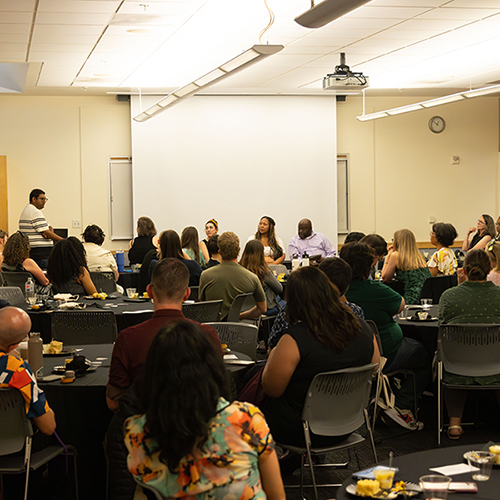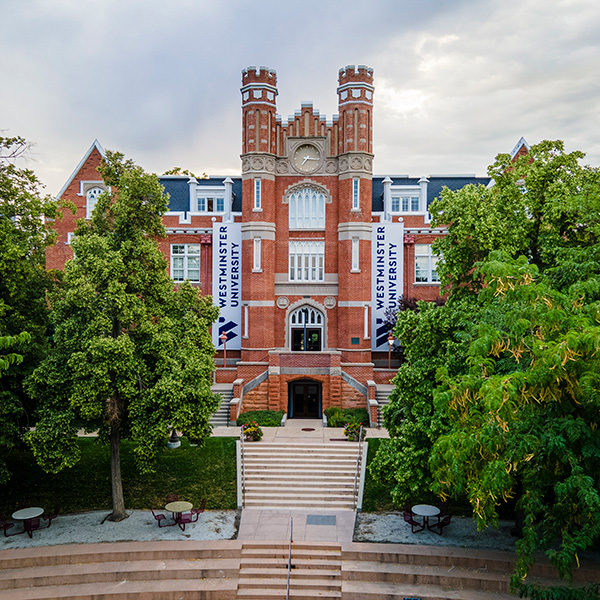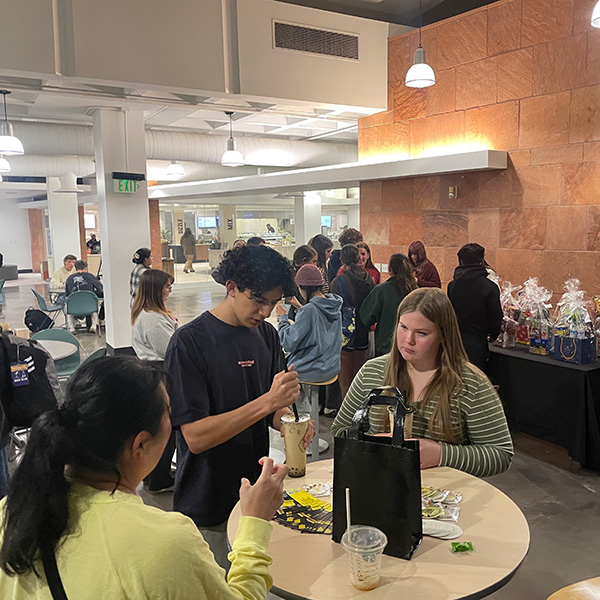
Westminster University’s annual tradition of celebrating Juneteenth National Freedom Day continued with an on-campus observance on Thursday, June 12. Attendees watched a screening of Black-ish's “Juneteenth” episode and heard from local community leaders who are working to preserve Utah’s history, highlight the stories and histories of Black Utahns, and create a more equitable community.
Juneteenth (short for “June Nineteenth”) National Freedom Day has been celebrated by Black Americans since the late 19th century. It marks the day when federal troops arrived in Galveston, Texas in 1865 to inform and ensure that enslaved Black Americans were finally freed following the end of the Civil War, two and a half years after President Abraham Lincoln signed the Emancipation Proclamation. Juneteenth National Freedom Day became a federal holiday in 2021, and the state of Utah added it to its list of state-observed holidays the following year.
At Westminster University, the Office of Diversity, Equity, and Inclusion has planned annual events for years to ensure that the Westminster community can come together and observe the holiday on a day when all employees are on campus. This year’s theme for the on-campus Juneteenth observance was “The Future of History,” connecting to Westminster University’s sesquicentennial year as we honor the past while imagining and planning for the university’s future. Dr. Tamara Stevenson, Chief Diversity Officer and Vice President of Diversity, Equity, and Inclusion, says that this year’s observance was especially important.
“At a time when national debates are intensifying over whose histories are preserved, erased, or politicized, this year’s program will center Juneteenth as both a historic milestone and a living, evolving symbol of freedom. Together, the campus community will reflect on what it means to preserve, challenge, and reimagine historical narratives in an era marked by book bans, curriculum restrictions, and cultural silencing,” says Dr. Stevenson.
The panelists echoed this sentiment with various examples from their experiences as leaders in the community. As Jennifer Ortiz, Society Director for the Utah Historical Society pointed out, many people imagine the typical Utahn as white, even though 1/4 of Utahns identify as an ethnic minority. According to Jennifer, uplifting the histories of marginalized individuals is not only important, but based in the reality of Utah’s population.
Michelle Mooney, the Impact Manager for the Salt Lake City Mayor’s Office of Access and Belonging, said that Salt Lake City’s decision to adopt three new official flags – the Sego Belonging Flag, the Sego Visibility Flag, and the Sego Juneteenth Flag – represent the city’s commitment to its values in the wake of legislative challenges.
Finally, Robert S. Burch, Jr., Founder of Sema Hadithi African American Heritage and Culture Foundation, shared that Black Americans are still facing the impacts from slavery, and that learning about the past is essential to creating a better future for all Americans. As Robert said, “Juneteenth serves as a mirror to the past and a mandate for the future.”




